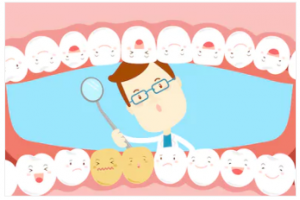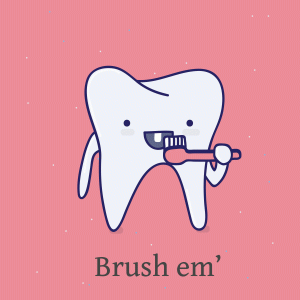 Calculus: hard, calcium-like deposits that form on teeth due to inadequate plaque control, often stained yellow or brown. Also called “tartar.
Calculus: hard, calcium-like deposits that form on teeth due to inadequate plaque control, often stained yellow or brown. Also called “tartar.
Caries: tooth decay or “cavities;” a dental infection caused by toxins produced by bacteria.
Flossing: a thread-like material used to clean between the contact areas of teeth; part of a good daily oral hygiene plan.
Gingivitis : inflamed, swollen, and reddish gum tissue that may bleed easily when touched or brushed. It is the first stage in a series of events that begins with plaque build up in the mouth and may end — if not properly treated — with periodontitis and tooth loss due to destruction of the tissue that surrounds and supports the teeth.
Oral Hygiene: process of maintaining cleanliness of the teeth and related structures.
Periodontitis: a more advanced stage of periodontal disease in which the inner layer of the gum and bone pull away from the teeth and form pockets and alveolar bone is destroyed
Pregnancy Gingivitis: gingivitis that develops during pregnancy. The hormonal changes that occur during pregnancy — especially the increased level of progesterone — may make it easier for certain gingivitis-causing bacteria to grow and make gum tissue more sensitive to plaque and exaggerate the body’s response to the toxins (poisons) that result from plaque.
Tartar: common term for dental calculus, a hard deposit that adheres to teeth; produces rough surface that attracts plaque.
WebMD “Glossary of Dental Health Terms.”, WebMD, www.webmd.com/oral-health/dental-health-glossary#1
External Links
https://www.bracesinfo.com/glossary.html
https://www.webmd.com/oral-health/dental-health-glossary




